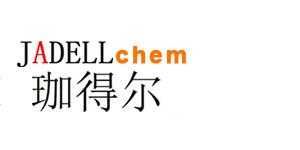Recombinant Mouse Leukemia Inhibitory Factor是参与各种神经和炎症过程的淋巴因子,例如急性期反应,组织损伤和感染。
Synonyms
rMuLIF; Differentiation-stimulating Factor; D factor; MLPLI
Species
MouseSource
E. coli Accession
P09056 Gene ID
16878 Molecular Weight
Approximately 19.9 kDa AA Sequence
SPLPITPVNA TCAIRHPCHG NLMNQIKNQL AQLNGSANAL FISYYTAQGE PFPNNVEKLC APNMTDFPSF HGNGTEKTKL VELYRMVAYL SASLTNITRD QKVLNPTAVS LQVKLNATID VMRGLLSNVL CRLCNKYRVG HVDVPPVPDH SDKEAFQRKK LGCQLLGTYK QVISVVVQAF SPLPITPVNA TCAIRHPCHG NLMNQIKNQL AQLNGSANAL FISYYTAQGE PF Biological Activity
The ED50 is <0.01 ng/mL as measured by M1 cells, corresponding to a specific activity of >1.0 × 108 units/mg. Appearance
Lyophilized powder. Formulation
Lyophilized after extensive dialysis against 50 mM Tris, 150 mM NaCl, pH 8.0. Endotoxin Level
<0.2 EU/μg, determined by LAL method. Reconstitution
Reconstitute the lyophilized recombinant Murine Leukemia Inhibitory Factor (rMuLIF) to 100 µg/mL using ddH2O. Storage & Stability
Lyophilized recombinant Murine Leukemia Inhibitory Factor (rMuLIF) is stored at -20°C. After reconstitution, it is stable at 4°C for 2 weeks or -20°C for longer. It is recommended to freeze aliquots at -20°C or -80°C for extended storage. Shipping
Room temperature in continental US; may vary elsewhere. Background
Leukemia Inhibitory Factor (LIF) has been shown to possess a remarkable variety of actions. It releases calcium from bone tissue, and is the differentiation inhibitory factor preventing spontaneous differentiation in normal embryonic stem cells[1]. Leukemia inhibitory factor (LIF) is involved in both the neural and immune responses to injury. Its levels are increased in a variety of animal and human inflammatory conditions. Administration of Leukemia Inhibitory Factor can suppress inflammatory signs in some cases, for instance after intratracheal lipopolysaccharide-induced inflammation. Leukemia Inhibitory Factor also increases corticosterone levels via the hypothalamo-pituitary-adrenal axis. Exogenously added Leukemia Inhibitory Factor induces acute phase protein expression and stimulates the production of proinflammatory cytokines and monocyte chemoattractants[2]. In the hematopoietic system, LIF induces the differentiation of certain leukemic cells and the proliferation of hematopoietic stem cells, megakaryocyte progenitor cells and DA1 cells. LIF also has activity in bone remodelling, induction of the acute phase response in hepatocytes, inhibition of adipogenesis, regulation of nerve differentiation and inhibition of kidney epithelial cell differentiation[3]. |



